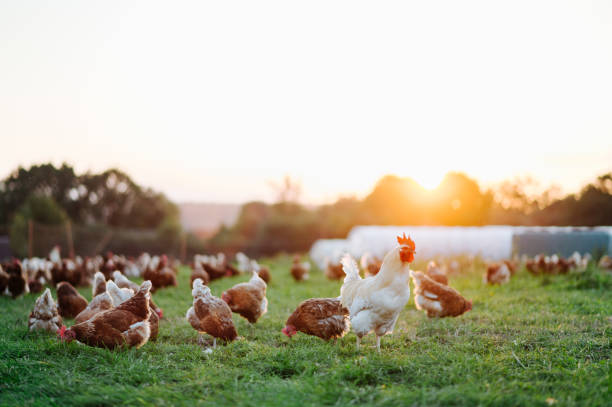In recent years, there has been a significant shift in consumer awareness regarding animal welfare, particularly in the sphere of poultry farming. The term “free range” has emerged as a core component of ethical eating practices, prompting discerning consumers to seek out higher welfare options for the meat they consume. In this article, we will explore the numerous benefits of incorporating free range chicken into your kitchen and the wide-reaching implications this choice has on animal welfare, consumer health, and the environment.
Understanding the Free Range Philosophy
The concept behind free range poultry is simple: chickens are allowed to roam freely for a significant part of their life, with access to outdoor spaces where they can engage in natural behaviours such as foraging, pecking, and dust bathing. This stands in stark contrast to the cramped conditions of battery cages or overcrowded barns that are often associated with intensive farming practices.
The Ethical Implications
The ethical argument in favour of free range chicken is compelling. Chickens raised in enriched, spacious environments tend to exhibit less stress and aggression compared to their caged counterparts. This not only contributes to a higher quality of life for the chickens but also a superior quality product for the consumer. Indeed, many people report that free range chicken boasts a richer flavour and more tender meat.
Animal Welfare and Health
From an animal welfare perspective, the benefits are clear. Chickens raised in free range systems are provided with opportunities to engage in natural behaviours, which contributes to physical well-being and psychological health. Reduced stress levels also mean that free range chickens often have stronger immune systems, making them less susceptible to diseases. This, in turn, reduces the need for antibiotics, which has significant implications for human health given the growing concern over antibiotic resistance.
Environmental Considerations
When it comes to environmental impact, free range chicken farming shows promise in promoting more sustainable practices. With a focus on small-scale, often family-run businesses, these farming methods can contribute to local economies and require less transportation of goods, thereby reducing carbon emissions. Additionally, the integration of poultry into regenerative farming practices can enhance soil quality and biodiversity on the farm.
Nutritional Benefits
It is not only the ethical and environmental arguments that make free range chicken an attractive choice; there are nutritional benefits as well. Studies have suggested that meat from free range chickens can be higher in certain nutrients, including omega-3 fatty acids, which are beneficial for heart health. Also, with a lower fat content compared to conventional chicken, free range options offer a leaner protein source for health-conscious consumers.
Consumer Responsibility
Consumers play an active role in supporting ethical farming practices by choosing free range products. By showing a preference for these higher welfare goods, there is an opportunity to influence the market and encourage larger-scale changes in the poultry industry. Consumer demand has the power to improve living conditions for farming animals and push for transparency within the supply chain.
Choosing the Right Free Range Chicken
One of the challenges consumers face is deciphering the authenticity of free range claims, as labelling can sometimes be misleading. It is important to seek out reputable sources and check for certifications that ensure the chickens have lived with access to outdoor areas and have been raised in accordance with ethical standards.
Taste the Difference
For those interested in the culinary aspect, free range chicken brings an undisputed level of quality to the kitchen. Renowned for its superior taste and texture, opting for free range not only supports ethical farming methods but also elevates the dining experience. Whether roasting, grilling, or incorporating into recipes, the difference in flavour is one that gastronomes and home cooks alike can appreciate.
Financial Considerations
It’s true that free range chicken often comes with a higher price tag compared to conventionally raised poultry. However, this reflects the ethical and sustainable farming practices that contribute to the animal’s welfare and the quality of the meat. Many consumers are prepared to pay a premium for the reassurance that the chickens they consume have been raised humanely.
Making the Ethical Switch
Switching to free range options doesn’t have to be a daunting process. Many local butchers and supermarkets now stock free range chicken, making it more accessible than ever. For those looking to make an ethical change in their dietary habits, introducing free range chicken into their kitchens is a straightforward starting point.
Supporting Ethical Farmers
By choosing free range, consumers are not just buying a product; they are supporting a community of farmers who are committed to ethical animal rearing practices. These farmers tend to have a genuine passion for animal welfare and environmental sustainability, and by purchasing their products, you are helping to ensure that they can continue their vital work.
Conclusion
The case for free range chicken is robust, encompassing aspects of animal welfare, environmental sustainability, nutritional value, and exceptional taste. Making the decision to incorporate free range chicken into one’s diet is not just a personal health choice but a responsible and conscientious step towards supporting ethical farming practices. For those who are mindful of where their food comes from and how it affects the world around them, free range chicken represents an ethical choice for the kitchen – one that has the power to drive positive change in the industry and promote a more humane and sustainable food system.
